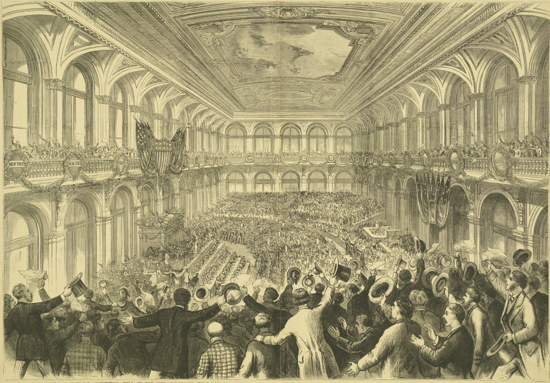Martha Thomases: Convention This!
What do you think about when you think about conventions?
If you’re a pedant like me, you might think a convention is a social norm.
If you’re a corporate type (sometimes like me), you think a convention is a trade show where industry insiders get together to discuss current developments in their field, while a variety of vendors try to interest potential new customers in their products.
If you’re a political junkie (also like me), you might think a convention is an event at which a political party nominates its candidates.
And if you’re a geek (again, I self-identify), you think a convention is a long weekend of panels, exhibits, cosplay and shopping.
As it happens, I enjoy all but the first of these conventions. My dad took me to a few shopping center conventions and I loved walking through the exhibit halls, considering new kinds of fixtures to put in the stores I imagined I owned. Once I went to a television convention where various studios shilled their programs for syndication, and I met Pat Robertson and Alan Thicke. And I used to love ABA, the convention for the American Booksellers Association, where bookstore owners planned their fall purchases.
This year, the political conventions of our two main political parties wrap around the San Diego Comic Convention. Can we tell them apart?
- Both political conventions and SDCC involve huge numbers of people who have traveled great distances to be there. Some people are there because it’s their job, but most are just fans who aren’t involved in any of the decision-making.
- Both star celebrities who are paid to be there. Both feature people marketing a current project and, maybe, auditioning for the next one.
- Both disrupt normal city life for residents, who put up with it because the celebrants spend a lot of money.
- Both seem to encourage people to dress up in outlandish costumes or, at the very least, funny hats. In both cases, some people do this more successfully than others. A lot of them do this well enough that strangers want to take photographs. Nobody does it well enough for me to want to give them any money.
- Both feature mostly straight cis white Christian men, many of whom are thrilled to be part of the majority for a change.
There are significant differences, however.
- Comic book conventions don’t have boring speeches that monopolize the entire space. Instead, there are several parallel programming streams, so that if a speaker can’t hold the attention of the audience, the audience will leave. As a result, comic book conventions are more entertaining.
- Comic book conventions don’t attract protesters who carry guns. Not yet.
- Many people who attend comic book conventions are thrilled to discover comic books that are new and different from what they expect.
- Political conventions have a lot more places to sit.
- Political conventions don’t have long lines at the bathrooms because people are using the stalls to change into more spectacular outfits.
- The only late-night television host who makes jokes at Comic-Con is Conan.
I won’t be at any of these events, but I look forward to bitching about them from the comfort of my living room.












